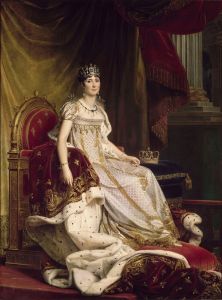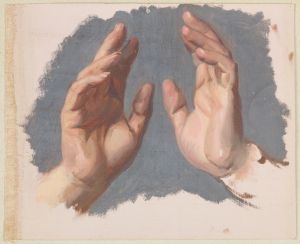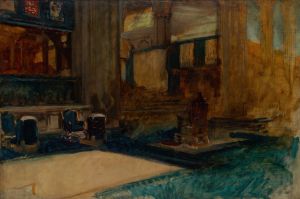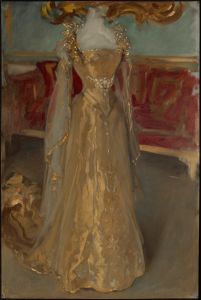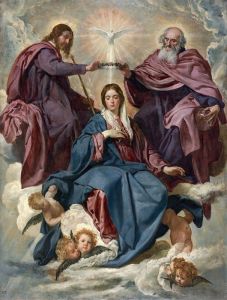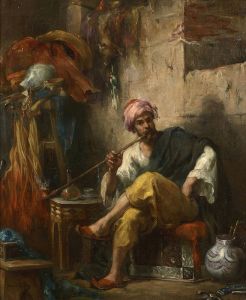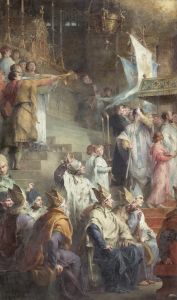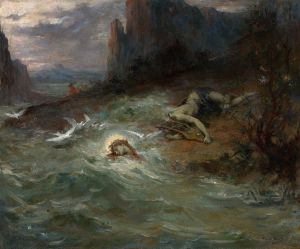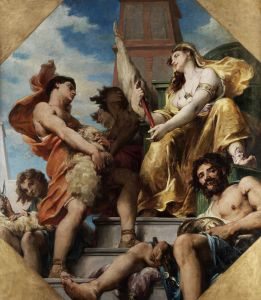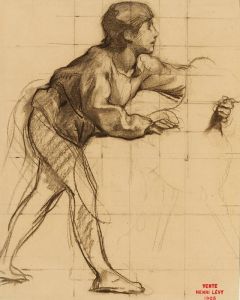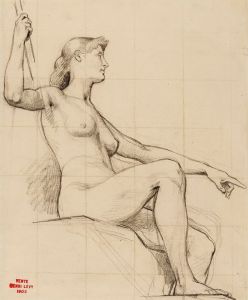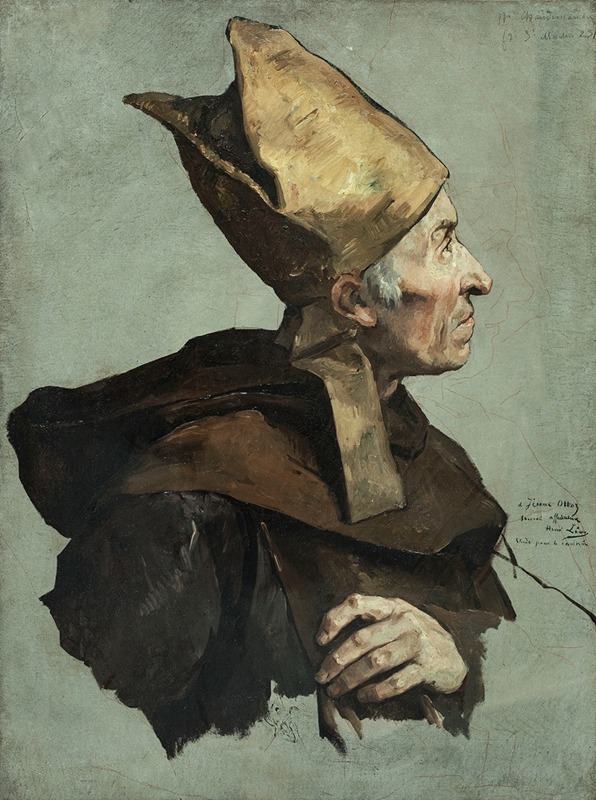
Un évêque
A hand-painted replica of Henri Leopold Lévy’s masterpiece Un évêque, meticulously crafted by professional artists to capture the true essence of the original. Each piece is created with museum-quality canvas and rare mineral pigments, carefully painted by experienced artists with delicate brushstrokes and rich, layered colors to perfectly recreate the texture of the original artwork. Unlike machine-printed reproductions, this hand-painted version brings the painting to life, infused with the artist’s emotions and skill in every stroke. Whether for personal collection or home decoration, it instantly elevates the artistic atmosphere of any space.
Henri Léopold Lévy was a French painter known for his works in the academic style, often depicting religious and historical themes. One of his notable paintings is "Un évêque," which translates to "A Bishop" in English. This painting exemplifies Lévy's skill in capturing the solemnity and dignity associated with ecclesiastical figures, a common subject in his oeuvre.
Henri Léopold Lévy was born on September 23, 1840, in Nancy, France. He studied at the École des Beaux-Arts in Paris, where he was a pupil of François-Édouard Picot and Alexandre Cabanel, both prominent figures in the academic art scene of the time. Lévy's training under these masters is evident in his meticulous attention to detail and his ability to convey complex narratives through his art.
"Un évêque" is a testament to Lévy's proficiency in portraying religious subjects with a sense of reverence and authority. The painting likely depicts a bishop, a high-ranking official in the Christian ecclesiastical hierarchy, characterized by his distinctive attire, which may include a mitre, a crosier, and other vestments that signify his office. Lévy's use of color, light, and composition would have been employed to emphasize the bishop's spiritual and temporal power, as well as his role as a shepherd to his congregation.
The painting reflects the broader 19th-century European interest in religious and historical themes, which were popular among academic painters. This period saw a resurgence of interest in the Middle Ages and the Renaissance, with artists often drawing inspiration from these eras to create works that resonated with contemporary audiences. Lévy's "Un évêque" fits within this context, as it captures the timeless nature of religious authority and the enduring influence of the Church.
Lévy exhibited his works at the Paris Salon, the official art exhibition of the Académie des Beaux-Arts in Paris, which was a significant platform for artists of his time. His participation in these exhibitions helped establish his reputation as a skilled painter of religious and historical subjects. While specific details about the exhibition history of "Un évêque" are not readily available, it is likely that the painting was part of Lévy's contributions to the Salon or similar exhibitions.
Henri Léopold Lévy's work, including "Un évêque," is characterized by its adherence to the principles of academic art, which emphasized technical skill, harmonious composition, and the portrayal of noble subjects. His paintings often evoke a sense of grandeur and solemnity, qualities that were highly valued in the academic tradition.
In summary, "Un évêque" by Henri Léopold Lévy is a significant work that showcases the artist's ability to depict religious figures with dignity and authority. Lévy's academic training and his focus on religious and historical themes are evident in the painting's composition and execution. While specific details about the painting's provenance and current location may not be widely documented, it remains an important example of Lévy's contribution to 19th-century French art.





